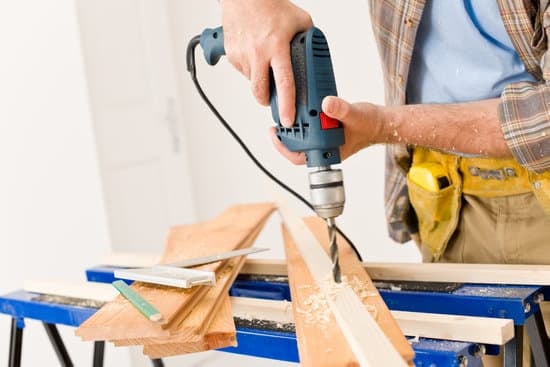Making home improvements within the uniform construction code is crucial for ensuring the safety and compliance of your project. The Uniform Construction Code (UCC) sets the standards and regulations for construction and building renovations to protect the health, safety, and welfare of occupants. In this article, we will explore the importance of adhering to the UCC when making home improvements and provide an overview of the key considerations for navigating its requirements.
The Uniform Construction Code (UCC) is a set of regulations and standards that govern all aspects of construction, including home improvements. Its primary purpose is to establish a uniform set of requirements for building safety, structural integrity, fire prevention, and energy efficiency. By understanding and following the UCC, homeowners can ensure that their improvement projects are in compliance with legal standards and meet essential safety protocols.
Before embarking on any home improvement project, it is essential to research and familiarize yourself with the specific UCC requirements that apply to your renovation or construction plans. This includes understanding zoning laws, permissible land use, setback requirements, building height limitations, accessibility standards, electrical codes, plumbing codes, mechanical codes, energy conservation standards among others. Proper planning also involves budgeting for necessary upgrades or changes to ensure compliance with the UCC.
Understanding the Uniform Construction Code
The Uniform Construction Code (UCC) is a set of regulations and standards that ensures the safety and compliance of construction projects, including home improvements. Understanding the UCC is essential for homeowners and contractors who want to make changes to a residential property while following legal requirements. The UCC is enforced at the state or local level, and it encompasses various building aspects, such as structural integrity, fire safety, plumbing, electrical systems, and energy efficiency.
Key regulations within the UCC that apply to home improvements include specific standards for structural modifications, electrical wiring upgrades, plumbing installations, and insulation requirements. These regulations are designed to protect the health and safety of occupants, as well as the overall integrity and longevity of homes. Additionally, the UCC often incorporates codes related to accessibility for individuals with disabilities to ensure that home improvements are inclusive and compliant with these standards.
Understanding these regulations is crucial before embarking on any home improvement project. Homeowners should familiarize themselves with the specific UCC requirements that relate to their planned updates or renovations. This may involve conducting research on state or local building codes, consulting with professionals in the construction industry familiar with these regulations, or seeking guidance from regulatory authorities.
In addition to understanding the UCC’s purpose and key regulations, homeowners should also educate themselves about how to make home improvements within this framework. Researching applicable UCC requirements for specific projects is essential before starting any work. By gaining knowledge about compliance standards early in the planning process, homeowners can budget effectively for their projects and avoid costly mistakes resulting from non-compliance.
Research and Planning
Before starting any home improvement project, it is crucial to understand the requirements set forth by the Uniform Construction Code (UCC). Researching the specific UCC regulations that apply to your project will ensure that your improvements are compliant with the established standards. Start by obtaining a copy of the UCC guidelines from your local building department or online resources. Take the time to familiarize yourself with the codes relevant to your planned improvements.
Once you have a clear understanding of the UCC regulations that pertain to your project, it’s time to start planning and budgeting. Consider how these regulations may impact your project in terms of materials, techniques, and overall cost. Budgeting for UCC-compliant home improvements may require setting aside additional funds for specific materials or labor costs. Having a detailed plan and budget in place will help you avoid potential issues and setbacks down the road.
When researching and planning for UCC-compliant home improvements, it’s also essential to consider any potential environmental impacts. Look into energy-efficient and sustainable options for your project that align with UCC standards. Utilizing eco-friendly materials and techniques not only helps reduce environmental impact but can also contribute to long-term cost savings. Prioritizing sustainability in your planning phase can lead to a more successful and environmentally conscious home improvement project.
| Research & Planning Considerations | Benefits |
|---|---|
| Familiarize yourself with UCC regulations | Ensures compliance and avoids potential issues |
| Create a detailed plan & budget | Helps avoid financial setbacks during the project |
| Consider energy-efficient & sustainable options | Reduces environmental impact & long-term cost savings |
Hiring a Licensed Contractor
When it comes to making home improvements within the Uniform Construction Code (UCC), hiring a licensed contractor is crucial. A licensed contractor not only has the necessary expertise and skills to complete the job, but they are also knowledgeable about the specific requirements outlined in the UCC. This ensures that your home improvement project is compliant with all relevant regulations and standards.
Importance of Hiring a Licensed Contractor
One of the primary reasons for hiring a licensed contractor for UCC-compliant home improvements is to ensure that the work meets all safety and quality standards. Licensed contractors have undergone training and certification processes, which demonstrate their understanding of building codes and regulations. This means they are better equipped to navigate the complexities of the UCC and implement the necessary measures to maintain compliance.
Verifying Credentials and Experience
Before hiring a contractor for your home improvement project, it is important to verify their credentials and experience with the UCC. This can be done by checking their license status with the appropriate state or local licensing board. Additionally, ask potential contractors about their previous experience working on projects that required compliance with the UCC. A reputable contractor will be transparent about their qualifications and readily provide references or examples of past UCC-compliant work.
By hiring a licensed contractor who is well-versed in the requirements of the UCC, homeowners can have peace of mind knowing that their home improvement project will be completed in accordance with all relevant regulations. It also minimizes the risk of non-compliance issues arising during or after the construction process, ultimately saving time and resources in addressing potential violations.
Permits and Inspections
Understanding the Permit and Inspection Process
Before undertaking any home improvement project, it is essential to understand the permit and inspection process under the Uniform Construction Code (UCC). The UCC requires that certain types of home improvements, such as structural modifications, electrical work, plumbing changes, and major renovations, must be approved through the issuance of permits. These permits ensure that the work being done complies with building codes and safety standards.
Once a permit is obtained, it is necessary to schedule inspections at various stages of the home improvement project. Inspections are conducted to verify that the work is being completed according to approved plans and in compliance with UCC regulations. Failure to obtain permits or schedule required inspections can result in costly fines and potentially having to undo completed work.
Tips for Obtaining Permits and Scheduling Inspections
When planning for a home improvement project within the UCC guidelines, it is crucial to research and understand the specific permitting requirements for your location. Each municipality may have its own set of rules and procedures for obtaining permits and scheduling inspections. It is advisable to contact the local building department or code enforcement office to determine which permits are needed for your particular project.
Additionally, when applying for permits, it is important to provide thorough documentation and detailed plans for the proposed home improvements. This may include architectural drawings, engineering reports, product specifications, and other relevant information. As for inspections, homeowners should be prepared to allow access to their property during designated inspection times and ensure that all work is completed before requesting an inspection.
Choosing UCC-Compliant Materials and Techniques
In order to obtain permits and pass inspections under the UCC, homeowners must use building materials and construction techniques that meet UCC standards. This includes selecting products that are tested and certified by accredited agencies as meeting applicable building codes. Furthermore, incorporating energy-efficient and sustainable options into home improvements can contribute to compliance with UCC regulations while also benefiting the environment and reducing long-term operating costs.
By following these guidelines on permits, inspections, material selection within Uniform Construction Code (UCC) regulations; homeowners can navigate through the home improvement process more smoothly while ensuring compliance with building codes.
Choosing UCC-Compliant Materials and Techniques
When it comes to making home improvements within the Uniform Construction Code (UCC), one of the most important aspects to consider is the selection of building materials and techniques that meet UCC standards. The UCC sets specific regulations and standards for construction materials and methods in order to ensure safety, durability, and compliance with building codes. Here are some key considerations for choosing UCC-compliant materials and techniques for your home improvement project:
- Research UCC-Approved Materials: Start by researching the list of approved building materials and techniques under the UCC. This may include specific types of lumber, insulation, wiring, plumbing fixtures, and other construction essentials.
- Consult with a Building Professional: If you’re unsure about which materials or techniques are UCC-compliant, it’s recommended to consult with a building professional or contractor who is knowledgeable about UCC requirements. They can provide guidance on suitable options for your project.
- Energy-Efficient and Sustainable Options: In addition to meeting basic UCC standards, consider incorporating energy-efficient and sustainable options into your home improvements. This could include using eco-friendly insulation, energy-efficient windows, or water-saving fixtures that not only comply with the UCC but also contribute to environmental sustainability.
By ensuring that the materials and techniques used in your home improvement project align with UCC standards, you can have confidence that your upgrades are not only compliant but also safe and durable for years to come. Taking the time to research and select UCC-compliant materials will ultimately lead to a successful and code-compliant home improvement project.
Remember that failing to use approved materials or techniques can result in costly corrections down the line or even pose safety hazards. Therefore, it’s crucial to prioritize compliance with the Uniform Construction Code throughout every stage of your home improvement process.
Ensuring Safety and Compliance
The key to making successful and compliant home improvements lies in ensuring safety and compliance with the Uniform Construction Code (UCC). Following the UCC not only guarantees the safety of your home and its occupants but also ensures that your home improvement projects are legally sound. So, how can you ensure that your home improvements are in line with the UCC?
First and foremost, it is crucial to familiarize yourself with the specific requirements outlined in the UCC for the type of home improvement project you are planning. Whether it’s a major renovation or a simple upgrade, understanding the code’s safety standards, structural regulations, and other relevant guidelines will be essential. This information can typically be found in local building codes or through resources provided by your local government.
Another important aspect of ensuring safety and compliance is avoiding common mistakes that could lead to violations of the UCC. Some of these mistakes include improper installation of electrical or plumbing systems, failure to obtain proper permits before starting work, and using substandard building materials. By educating yourself about these potential pitfalls, you can take proactive measures to prevent them from occurring during your home improvement project.
Furthermore, sourcing high-quality and UCC-compliant building materials is paramount. From insulation and roofing materials to fixtures and appliances, every component used in your home improvements should meet or exceed UCC standards. Additionally, choosing energy-efficient and sustainable options not only aligns with UCC guidelines but also contributes to a more eco-friendly living space.
In summary, ensuring safety and compliance while making home improvements within the Uniform Construction Code involves thorough research into code requirements for your specific project, vigilance against common mistakes, use of high-quality materials that meet standards, and implementation of energy-efficient practices when possible.
| Key Points | Details |
|---|---|
| Familiarize with UCC Requirements | Understand safety standards & structural regulations |
| Avoiding Common Mistakes | Proper installation & obtaining necessary permits |
| Using High-Quality Materials | Selecting materials meeting UCC standards & sustainable options |
Conclusion
In conclusion, it is crucial to understand and adhere to the Uniform Construction Code (UCC) when undertaking home improvements. The UCC serves as a set of regulations and standards that ensure the safety, efficiency, and compliance of construction projects, including renovations and upgrades to residential properties. By following the UCC guidelines, homeowners can protect their investments, guarantee the quality of workmanship, and contribute to overall public safety.
As outlined in this article, navigating the UCC requirements for home improvements involves thorough research, planning, hiring licensed contractors, obtaining permits and inspections, selecting UCC-compliant materials and techniques, and prioritizing safety and compliance. By following these steps and understanding the specific regulations that apply to their projects, homeowners can successfully achieve their desired improvements within the framework of the UCC.
Ultimately, while the process of making home improvements within the Uniform Construction Code may involve additional steps and considerations, it ultimately leads to a safer and higher-quality result. By committing to UCC compliance when making home improvements, homeowners can ensure that their properties meet established standards for durability, energy efficiency, and safety.
With proper planning and adherence to UCC guidelines throughout the improvement process – from research through final inspection – homeowners can enjoy long-lasting benefits from their investment in property upgrades.
Frequently Asked Questions
What Is the New Jersey Uniform Construction Code?
The New Jersey Uniform Construction Code (UCC) is a set of regulations that govern the construction, installation, repair, and maintenance of buildings and structures in the state. It aims to ensure safety and compliance with building standards and codes.
What Date Was the NJ Uniform Code Approved?
The NJ Uniform Construction Code was approved on March 6, 1975. Since then, it has been periodically updated to incorporate changes in construction technology, materials, and methods.
What Renovations Require a Permit in NJ?
In New Jersey, renovations that involve alterations to the structural or mechanical systems of a building generally require a permit. This includes projects like additions, electrical work, plumbing changes, HVAC upgrades, and more. It’s important to check with your local code enforcement office to determine the specific requirements for your project.

I’m thrilled to have you here as a part of the Remodeling Top community. This is where my journey as an architect and remodeling enthusiast intersects with your passion for transforming houses into dream homes.





